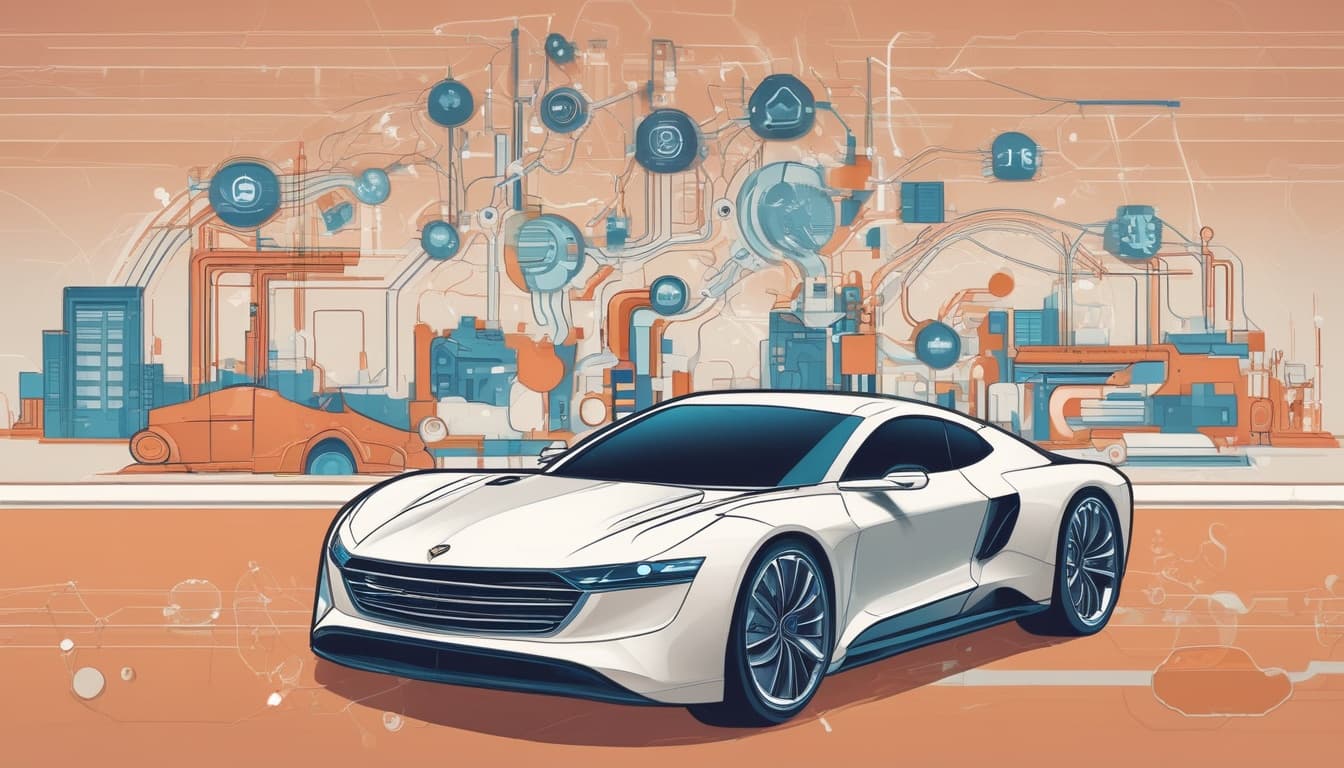Fast forward 100 years: today's cutting-edge EVs and AI-integrated vehicles are relics. How will future enthusiasts or historians approach understanding, restoring, or even ethically 'hacking' these complex machines? What unique skills, tools, or digital forensics techniques would be essential for this 'digital automotive archaeology', and what forgotten stories might these vehicles tell about our current era?
That's a fascinating thought experiment! Projecting 100 years into the future, the challenge of understanding and interacting with today's EVs and AI-driven cars will be immense. I imagine a whole new field emerging: 'Digital Automotive Archaeology'.
Here are some skills and techniques I think would be crucial:
- Reverse Engineering Experts: The ability to decipher proprietary software and hardware will be paramount. Think of it as cracking the Enigma code, but for car operating systems. They'd need to be adept at understanding legacy code, possibly using AI to assist in translation and debugging.
- Data Forensics Specialists: Retrieving and interpreting data from potentially degraded or obsolete storage mediums (think solid-state drives from today) will be key. This includes understanding data structures, encryption methods, and data recovery techniques. Imagine trying to piece together a car's driving history from fragmented data!
- Materials Scientists with a Digital Focus: Understanding the degradation of modern materials (composites, specialized alloys, etc.) in conjunction with the effects of long-term data storage on embedded systems will be critical. They'll need to analyze both the physical and digital aspects of the vehicles.
- Ethical Hackers: Gaining access to and manipulating the vehicles' systems without causing harm or violating ethical boundaries. This requires a deep understanding of cybersecurity and a commitment to responsible exploration. As discussed in The Cybersecurity Imperative: Protecting Connected Vehicles from Emerging Threats, security is a constant arms race, and future generations will need to understand the vulnerabilities of our current systems.
- AI Whisperers: If AI continues its trajectory, future archaeologists might need to 'negotiate' with or understand the logic of the AI systems embedded in these vehicles. This could involve analyzing the AI's training data, its decision-making processes, and its interactions with the driver and environment.
As for the stories these vehicles might tell, I think they'll offer a glimpse into:
- Our Relationship with Technology: How reliant were we on automation? What were the ethical considerations surrounding AI in vehicles? What compromises did we make in terms of privacy and security for convenience?
- Our Environmental Concerns: What fuel sources were prevalent? How efficient were our vehicles? What materials were used, and were they sustainable? The future could judge our success in driving sustainability through the circular economy.
- Our Social Values: What did our cars say about our status? How did we use them to connect with others? What were our driving habits like? Did we embrace car sharing or cling to individual ownership?
It's a compelling idea. These future 'digital automotive archaeologists' will be part historian, part engineer, and part detective, piecing together the story of our era through the artifacts we leave behind.
探索更多相关内容
加入讨论
- 自动驾驶时代:汽车如何成为您的心灵充电站?
在自动驾驶的未来,汽车将超越交通工具,成为应对现代生活压力的心灵休憩港湾。本讨论深入探讨如何通过定制化的感官体验、智能互动,将车载空间设计为恢复精力、激发灵感甚至实现“数字禅修”的移动充电站,提升用户身心健康。
- 未来汽车:城市生态的移动共生体?
深入探讨未来汽车作为城市“移动共生体”的可能性。想象它们如何主动吸收污染物、种植微型植物,并为城市提供清洁能源,从而彻底改变城市面貌和我们的生活方式。本讨论将分析此类创新带来的设计挑战与伦理考量。
- AI定制时代:汽车的“灵魂”与“美”将由谁来定义?
在AI深度定制汽车的时代,传统汽车设计与经典美学将面临何种变革?本讨论深入探讨人工智能对汽车外观、内饰及驾驶体验个性化的影响,以及人类创造力在其中扮演的新角色。它还思考了AI主导的无限个性化将如何重塑汽车作为文化符号和艺术品的价值,并展望未来汽车“灵魂”与“美”的定义权归属。




